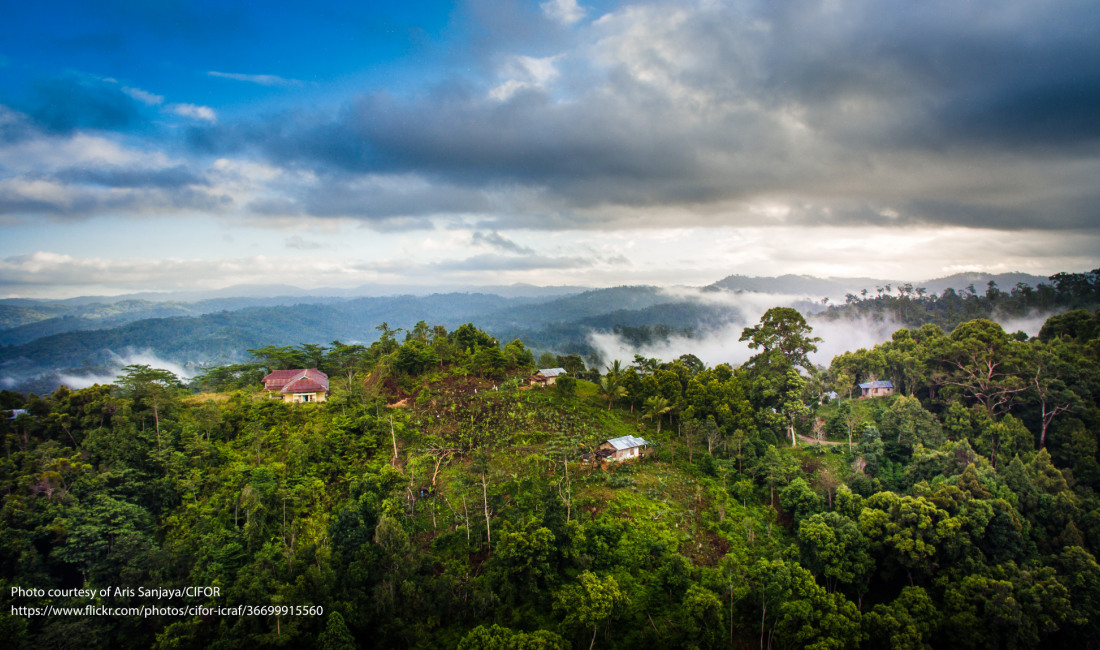Decentralisation made Indonesia democratic. Now the national government uses military and intelligence officials to claw back.
You can also read this column in Javanese here.
When his term expired in 2022, the regent of West Seram, a local jurisdiction in Indonesia’s Maluku province, couldn’t run for re-election.
Article 18 of Indonesia’s Constitution, guarantees local governments autonomy and the right to choose their leaders by election. But there was no vote to choose this new regent.
Instead, Indonesia’s national government quietly installed a military brigadier general, Andi Chandra As'aduddin, to interim leadership through November 2024. He had been serving as a bureau head in the national intelligence agency (known as BIN) in Central Sulawesi—1,000 kilometres away.
This audacious case of cawe-cawe, the Javanese word for political meddling, was neither accidental nor extraordinary. To the contrary, it is part of a deliberate strategy by Indonesia’s increasingly authoritarian national government. The goal: to undermine the local control that has been the most cherished feature of the world’s fourth most populous country’s quarter-century-old democracy.
In the past four years, Indonesia’s national home ministry has manoeuvred to install more than 170 loyalists, drawn from the national police, military, and intelligence agencies, as interim leaders of local regions.
Whether local democracy can defend itself is a crucial question of the most important 2024 elections you’ve probably never heard of—Indonesia’s November 27 local elections to select representatives across 37 provinces, 548 regions, 415 regencies and 93 cities.
It’s also an urgent question for the democratic world.
Indonesia has been a major success in the long global effort to boost democracy and development by decentralising power. Since 1970, most nation-states have devolved at least some national governing powers to provincial or municipal governments, many of them newly formed. International institutions, including the World Bank and the European Union, have incentivized this shift by conditioning membership and/or aid on decentralised government.
The result: an explosion in the number of local and sub-national governments. India has twice as many states as when it became independent and South Africa has quintupled its number of municipalities since Apartheid. The world’s many new local governments have held more elections and adopted more democratic processes to justify their greater autonomy over public spending and land use.
Indonesia’s decentralisation was perhaps the most dramatic in the world. After the collapse of its highly centralised, military-dominated dictatorship in 1998, the country transferred an astonishing range of responsibilities—in finance, health, environment, transportation, economy and manufacturing—to its regions, regencies (local rural areas) and municipalities. The idea was to spur more local development and to protect fledgling democracy against the dictatorship’s return.
Indonesia has achieved both goals. Today it is Southeast Asia’s most vibrant democracy and its fastest-growing economy. The country has risen in international assessments of governance, and its local governments have won global awards for resilience and sustainability. Decentralisation remains popular, with 80 percent support in polls. On my visits to Indonesia earlier this year, everyday Indonesians—from construction workers to a smartphone repairwoman—often told me, without prompting, that local democracy was the secret to the country’s successes.
But democracy and development experts complain that Indonesia has never provided its local governments the money or skilled personnel necessary to fulfil all their extensive responsibilities. And the national government, in the name of pursuing grand projects, has sought to claw back local decision-making power—particularly under President Joko Widodo, who was succeeded in October by his handpicked successor, a former military leader.
In this context, the national government’s “strategic interim appointments,” as some critics call them, seem like an escalation, and a dangerous turn back toward military-dominated dictatorship.
Public attention has focused on the interim appointment in West Seram and three others. In West Papua, an intelligence officer and former police commander with ties to top national officials was installed as temporary regional head, despite fierce local opposition. In Aceh, which has a history of national military human rights abuses for which there has been little legal accountability, a former military major from Jakarta was appointed as an interim regional governor.
And in Jakarta, the president made an interim governor out of a top ally, who overturned the elected governor’s more progressive policies on everything from anti-poverty measures and utilities regulation to the widening of sidewalks for pedestrian safety.
Both the courts and the national ombudsman have declared such temporary appointments to be lacking in transparency and legally dubious. Civil society groups have noted that the appointees have little background in local or regional civil governance.
“In a nutshell, the process was closed to the public; it lacks any proper legal basis; and it violates the constitution. Alongside, there is suspicion that the appointees were selected strategically in order to secure the current regime’s destructive and unpopular development agendas,” writes Yassar Aulia of Indonesian Corruption Watch, an independent NGO, and Azeem Amedi of the University of York in their report, Eroding Indonesian Local Democracy. “Like the climate crisis, democratic backsliding is not some future grim prospect, but has already arrived and is well-underway.”
But the national government has defiantly kept these interim appointees in office; several are running in this month’s elections.
National officials argue that the interim appointees provide stability. This is nonsense. Locally, the interim leaders have drawn protests and have required more security to protect. In Papua, the national government has appeared to use the interim appointees as part of a larger strategy of dividing opposition strongholds. One province has become three, with more non-indigenous Papuans in local government posts.
The outlook for local democracy is not good. In advance of the November elections, leading national parties sought to make it harder for local parties to field candidates, and tried to make Jakarta’s governorship an appointed position. The national government also decided that the country’s future capital, Nusantara, now under construction on the east coast of Borneo, will not have its own democratic municipal government.
Local democracy constitutes the vast majority of the democracy that exists in Indonesia and the world. The stakes of these local elections are global.





